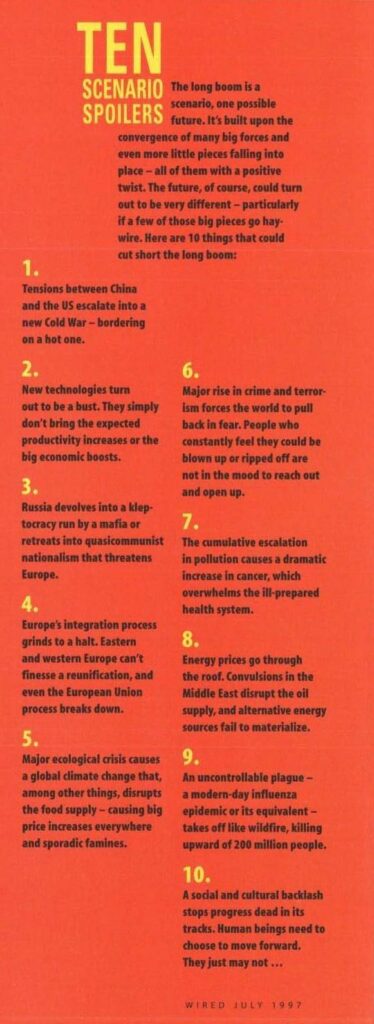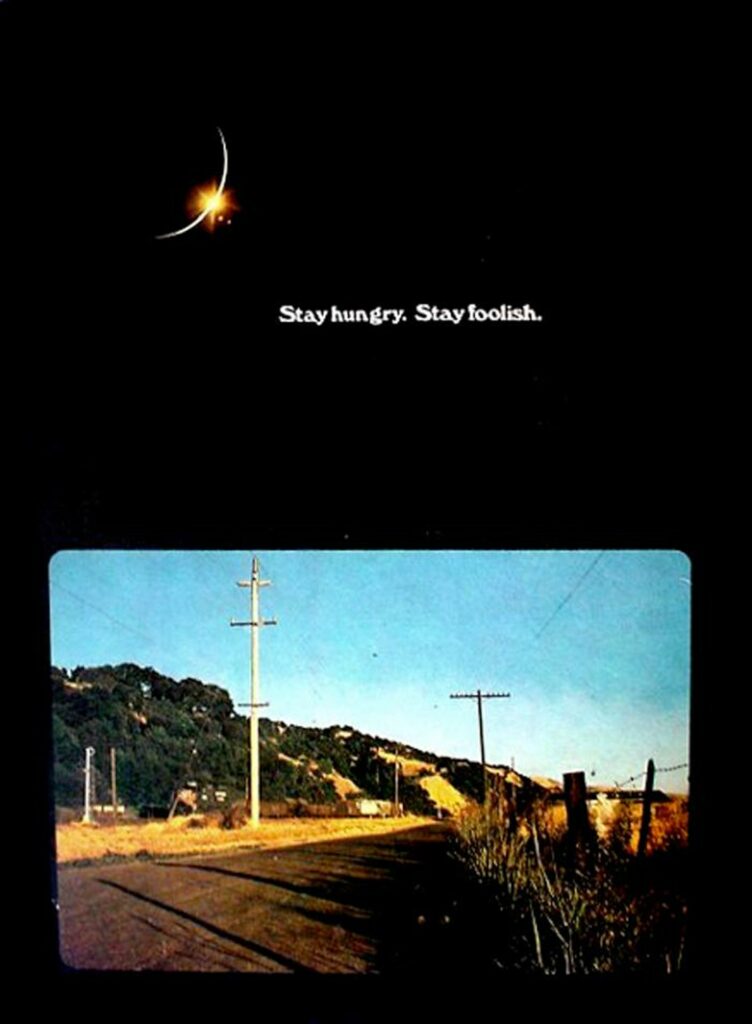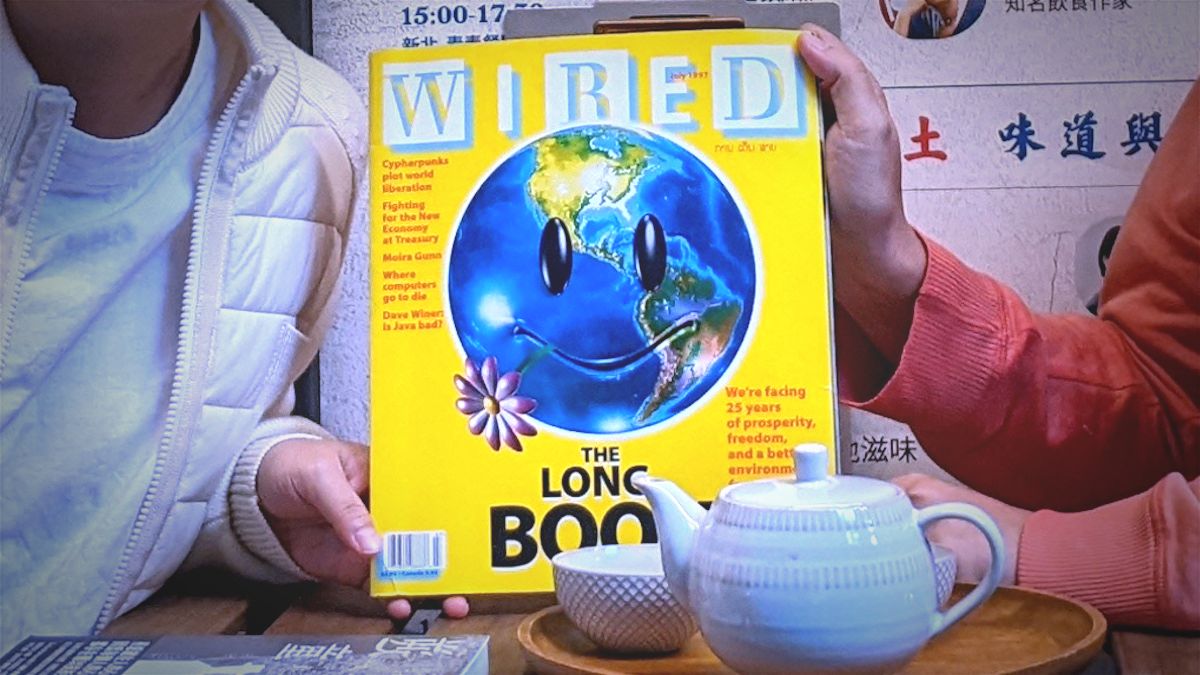In July 1997, several events took place. Some were widely known, while others received little attention. However, for me, all of them left a deep impression. It can even be said that these events, to a greater or lesser extent, have shaped who I am today.
As for the first event, since everyone knows about it, I won’t waste words on it to earn article fees (wait, do you have article fees to start with?)
A two-line resume
The second event was my graduation from the Chinese University of Hong Kong. Normally, students graduate in July, but due to my poor grades and lack of direction, I didn’t give up my major in computer engineering, which required a high number of credits, while also wanting to complete minors in sociology and political science. As a result, I had to study for an additional semester and only officially graduated at the end of the year. However, during that extra semester, I took only a few relatively simple courses and spent most of my time writing articles and teaching to earn money or looking for a job, feeling as if I had already graduated in July.
Because of the combination of fields I was interested in and my cunning desire to replace writing code with writing articles for my final year project (FYP), I had hoped to use “How the Internet Affects Society” as my FYP topic. However, it didn’t meet the department’s research requirements for “scientific research,” at least as judged by the professor. I also considered studying Chinese input methods, but unfortunately, no professor was willing to advise me, so I had to give up. At the time, Chinese was often built on top of the native English operating system, and many times browsing Chinese web pages would result in garbled text. So, my partner and I developed a plugin that would package the fonts with the web page and download them to the client browser for display. However, the development of technology ultimately rendered it useless.
In any case, despite my disappointing grades, I graduated in 1997. My post-graduation history is also the history of Hong Kong’s handover of sovereignty, which has been 25 years, half of the legendary unchanging period.
If I had to look for a job today and organize my resume, it would probably be a very brief document: 20 years in mobile game development, followed by 5 years in LikeCoin. The actual situation is a bit more complicated, but not much different. With some “resume rhetoric” embellishment, only these two items would remain, after all, no one would write details like “1998.01-12: Lost in life, financial crisis, muddling along” on their resume.
Uncle kin’s Oral History of Telecom
Before I talk about the third event, let me first reminisce about the development of telecommunications and the internet in 1997. Of course, for you youngsters, this would be uncle kin’s oral history.
Hong Kong has always been at the forefront of technology adoption. In 1997, some people already had mobile phones, with Ericsson, Nokia, and Motorola dominating the market. Not being a trend follower, I only applied for New World’s mobile phone service in 1998. Before graduating, I used a pager, but with a slight upgrade—I paid a few extra dollars a month for the “secretary service” which connected me directly without the need for paging a specific number. The operator would ask, “Who’s looking for Mr. Ko?” as soon as the call connected. Sometimes my mom would say, “I’ve talked to your secretary”, which made me both laugh, but it was, in fact, quite an accurate description.
When I mentioned mobile phones earlier, I was referring to the GSM system, which is “2G” before 5G, 4G, 3.5G, 3G, and 2.5G that came after. Apart from that, many young people at the time used pagers in combination with CT2, which could only make outgoing calls. In Taiwan, it was commonly known as “二哥大” (second elder brother) or in Hong Kong, the “天地綫“ (Heaven and Earth Line) endorsed by Leon Lai and “Ah May” in a series of advertisements for Hutchison. By the way, there was also the PHS system with lower prices but poorer coverage, which didn’t become popular in Hong Kong but was widespread in Japan. It was the type of phone that Yae had to pull out the antenna and run to the window to chat with Harumichi in “First Love.”
Wireless internet access was still a fantasy in 1997, and mobile phones were used for voice communication, with SMS not yet popular. As for internet access, after July 1997, I didn’t spend much time on campus and couldn’t rely on the campus network. Being an internet addict, I naturally paid for the installation of Netvigator broadband service. At the time, “broadband” wouldn’t even qualify as “narrowband” by today’s standards—if I remember correctly, it was 1.5M.
In addition to broadband, I also installed interactive TV, or “iTV”, which allowed me to watch movies through broadband (although downloading one took ages) and enjoy McDull content (at that time, McDull was a supporting character and hadn’t become popular yet). If you consider that the “i” in iMac began in 1998 and compare it to Netflix, which was founded in 1997, mailing DVDs at first and not starting to offer streaming services until 2007, gradually replacing the DVD business, you can roughly imagine how cutting-edge Hong Kong was in the early days of the internet before being completely positioned as a real estate and financial center.

Another 25 Years: The Long Boom
Let’s return to the third event, something that few people know about, and most of those who do have likely forgotten.
In July 1997, WIRED magazine published an article titled “The Long Boom,” making a very optimistic prediction about how the internet would impact the world: “We’re facing 25 years of prosperity, freedom, and a better environment for the whole world. You got a problem with that?”
Yes, another 25 years.
As a loyal fan of WIRED magazine, I was stunned when I received the issue with its bright yellow cover featuring a large Earth smiley face. If I could have chosen to study “How the Internet Affects Society” as my Final Year Project (FYP) topic, my thesis might have looked like this, I thought.
However, to be fair, even if I could have studied this topic, I definitely wouldn’t have been able to write with such insight. Moreover, even if my FYP didn’t allow me to research this subject, I could have still studied it privately if I was truly passionate about it, so the above is clearly just an excuse.
The development stage of the internet in 1997 was somewhat similar to that of blockchain in 2022. Most users were tech-savvy or young people who were ahead of the curve, while the general public had heard of it but might not understand what it was; even if they had used it and registered a Hotmail email address, they might not be willing to go through the trouble and pay a monthly fee for internet access. For reference (though not scientific), the first internet directory Yahoo! went public in April 1996, while the first cryptocurrency exchange, Coinbase, went public in April 2021.
At that time, the applications of the internet were still in their infancy, and attention to its impact on the world was even rarer. Although I already had a personal website (http://www.cse.cuhk.edu.hk/~ckko), blogs didn’t become popular until after 2000, leaving me without an outlet for sharing. So, in the last “Hong Kong Media” class, I gave the magazine to the lecturer, Dr. Eric Ma, and asked him to pay attention to this issue. I believe he must have forgotten this minor incident and might not even remember me; even if he does remember, he wouldn’t associate it with me from 1997.
The Long Boom cover story is fascinating but also quite lengthy, so I think it’s best not to recount it here. If you’re interested and a WIRED subscriber, you can still read it on the website. For non-subscribers or those who want to see the print layout, you can visit the Internet Archive to browse.
Revisiting “A History of the Future”
I often feel that the best way to read predictions is to read them in the future. For example, at the end of the year, it is much more interesting and useful to look back at the predictions made by “masters” like Mak Ling Ling and So Man Fung at the beginning of the year than to read predictions for the coming year. Reality checks are good friends of prophets and the bane of charlatans.
Although The Long Boom is fascinating, as a prophecy, it naturally has its share of inaccuracies. As the internet has evolved, it has increasingly deviated from its original vision due to factors such as unilateral internet censorship by authoritarian countries, the rise of protectionism, and the excessive concentration of capital. This has naturally brought about many deviations in these very optimistic predictions.
However, the most interesting and controversial part of The Long Boom is not its main text, but rather a sidebar titled “Ten scenario spoilers,” which lists ten potential factors that could disrupt the beautiful 25-year period. Some of the points are as follows:
1. Tensions between China and the US escalate into a new Cold War – bordering on a hot one.
3. Russia devolves into a kleptocracy run by a mafia or retreats into quasicommunist nationalism that threatens Europe.
4. Europe’s integration process grinds to a halt. Eastern and western Europe can’t finesse a reunification, and even the European Union process breaks down.
6. Major rise in crime and terrorism forces the world to pull back in fear. People who constantly feel they could be blown up or ripped off are not in the mood to reach out and open up.
9. An uncontrollable plague – a modern-day influenza epidemic or its equivalent – takes off like wildfire, killing upward of 200 million people.

Reading this far, you can probably understand why, after 25 years, I still feel very shocked when I revisit this quite US-centric and not entirely accurate prediction.
If looking back at the past has any positive meaning, it must be because it helps to look forward to the future. I do not know how to predict whether the 25 years after “The Long Boom” will be followed by another 25 years of “The Long Collapse”. However, if it’s just predicting the second 25 years at “the specific point in the Western Pacific”, it might be quite easy to guess.
Whether it’s easy to guess or not, what I care more about than predicting is what I can do in this time and space, besides “actively lying flat” on the survival level, to strive to become one of the ten variables of “The Long Collapse” in 25 years, at least adding some possibilities to the future history.
Being even humbler, even if I can’t add variables to history, I think, at the very least, I need to help record history and preserve the truth. Otherwise, where will humanity go in 25 years to understand what happened 25 years ago, 50 years ago, and the promises made in historical documents? Public libraries? Accessing newspapers, magazines, and books from 25 years ago with just one click is by no means a given. If we can’t hold on to this, let alone change history, we won’t even have the foundation to recognize the facts.
I don’t know if all this will be in vain once again; all I know is that it must be so.
p.s.
Because I loved the July 1997 issue of WIRED so much, I later ordered another copy by mail and cherished it in my bookshelf. However, as I grew older, I began to care less about material things and developed a new perspective on “ownership,” often looking for opportunities to give my collectibles to more suitable owners. So, last month, I took the magazine to the Nowhere Bookstore in Taipei and gave it to Annie Zhang. If you happen to pass by Ximending one day, you might want to stop by Nowhere Bookstore to take a look. In addition to WIRED, they even have the October 1974, which is the same month and year I was born, issue of the “Whole Earth Catalog”, with “Stay hungry. Stay foolish.” printed on the back cover.



Leave a Reply